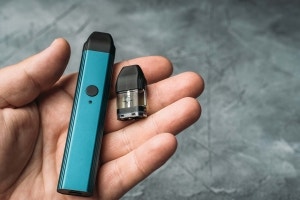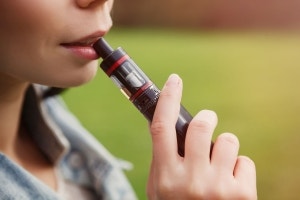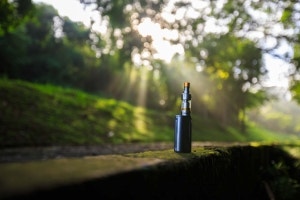CBD Flower in the UK: A Turn in the Legal Tide?
The next step for the CBD market.

The conversation around cannabis and its derivative products has been a topic of hot debate worldwide, and the United Kingdom is no exception. CBD, or cannabidiol, one of the many compounds found in the cannabis plant, has caught particular interest due to its purported benefits. In contrast to its more notorious sibling compound THC (Tetrahydrocannabinol), CBD does not possess the psychoactive properties that give the 'high' feeling associated with cannabis use.
CBD was initially legalised in the UK in 2018, a decision that opened doors for the production, sale, and use of CBD products, as long as they contained less than 0.2% THC. However, the legal landscape around specific CBD products, such as CBD flowers, remains ambiguous and complex. Let's delve into the journey of CBD legality in the UK, looking at why certain products are still prohibited and the implications of recent court rulings, to better understand where the UK stands today in terms of CBD flower legality.
What are CBD Flowers?
CBD Flowers are the buds of the hemp plant. Rich in cannabidiol (CBD), these flowers are sought after for their high levels of this beneficial compound. When the hemp plant matures, the CBD compounds are fully formed and reside mainly in the sticky, resinous flowers of the plant. These flowers also contain a spectrum of other beneficial compounds like terpenes and flavonoids, which contribute to the overall potential benefits known as the 'entourage effect.'
Their usage varies based on personal preferences. Some people choose to vaporise CBD flowers for a quick effect, while others may prefer to infuse them in oils or brew them in teas. The primary motivation behind using CBD flowers over other CBD products often links to the potency and immediacy of their effects.
As CBD flowers are the raw source of CBD, consuming them allows for a more direct and potent intake of CBD. This stronger benefit, coupled with the potential for faster onset of effects, makes CBD flowers an appealing choice for many.
However, it's important to remember that while CBD has many potential benefits, the efficacy and safety of CBD products can widely vary. Always exercise caution and consider seeking professional advice if you're new to CBD or have any underlying health conditions. CBD should not be used to treat medical conditions unless stated otherwise by a medical professional. More research is necessary to cement CBD's benefits but so far studies have been promising.
Court of Appeal's Recent Case on CBD Flowers
In a landmark case that has sparked conversation across the UK, a CBD brand recently took their plight to the Court of Appeal. The brand was facing prosecution for selling CBD flowers, a product still considered illegal in the UK despite its low THC content. The court's role was to decide whether CBD flowers were to be classified as a narcotic drug, an outcome that could have far-reaching implications for the CBD industry.
In this pivotal case, the defence argued that CBD flowers, specifically those containing less than 0.2% THC, should not be classified as a narcotic substance. This argument was based on the fact that such low levels of THC do not cause any psychoactive effects, and therefore should not fall under the remit of narcotic control.
In a surprising turn of events, the Court of Appeal recognised that CBD flowers containing under 0.2% THC are not narcotic drugs. This ruling marked a significant step towards a potential shift in the legal status of CBD flowers in the UK. However, it's important to note that this does not mean CBD flowers are now legal to sell in the UK. They are still considered illegal under current UK law.
This ruling, however, adds an interesting dimension to the ongoing dialogue about CBD flower legality in the UK. It has opened up the conversation with the government about its current classification as a narcotic drug, potentially paving the way for future legal changes.
Conclusion
The pathway to a shift in CBD flower legality is becoming more visible, though it's still enshrouded in a fog of legal complexities and regulatory uncertainties. The recent court ruling has, without a doubt, triggered a crucial dialogue about reclassifying CBD flowers under UK law. It has cast a ray of hope for CBD businesses who long to see the day when these beneficial buds can be freely retailed.
However, the change in legislation is a process that requires time, deliberation, and a careful examination of the potential societal and health implications.
Therefore, while the prospect of CBD flowers becoming legal in the UK is more plausible than ever, it remains a topic of conjecture. The optimist in us holds onto the hope that the day isn't too far when the benefits of CBD flowers are accessible to all, sans legal hurdles. Keep an eye on this space as we continue to update you on the latest developments in the UK's CBD landscape.











